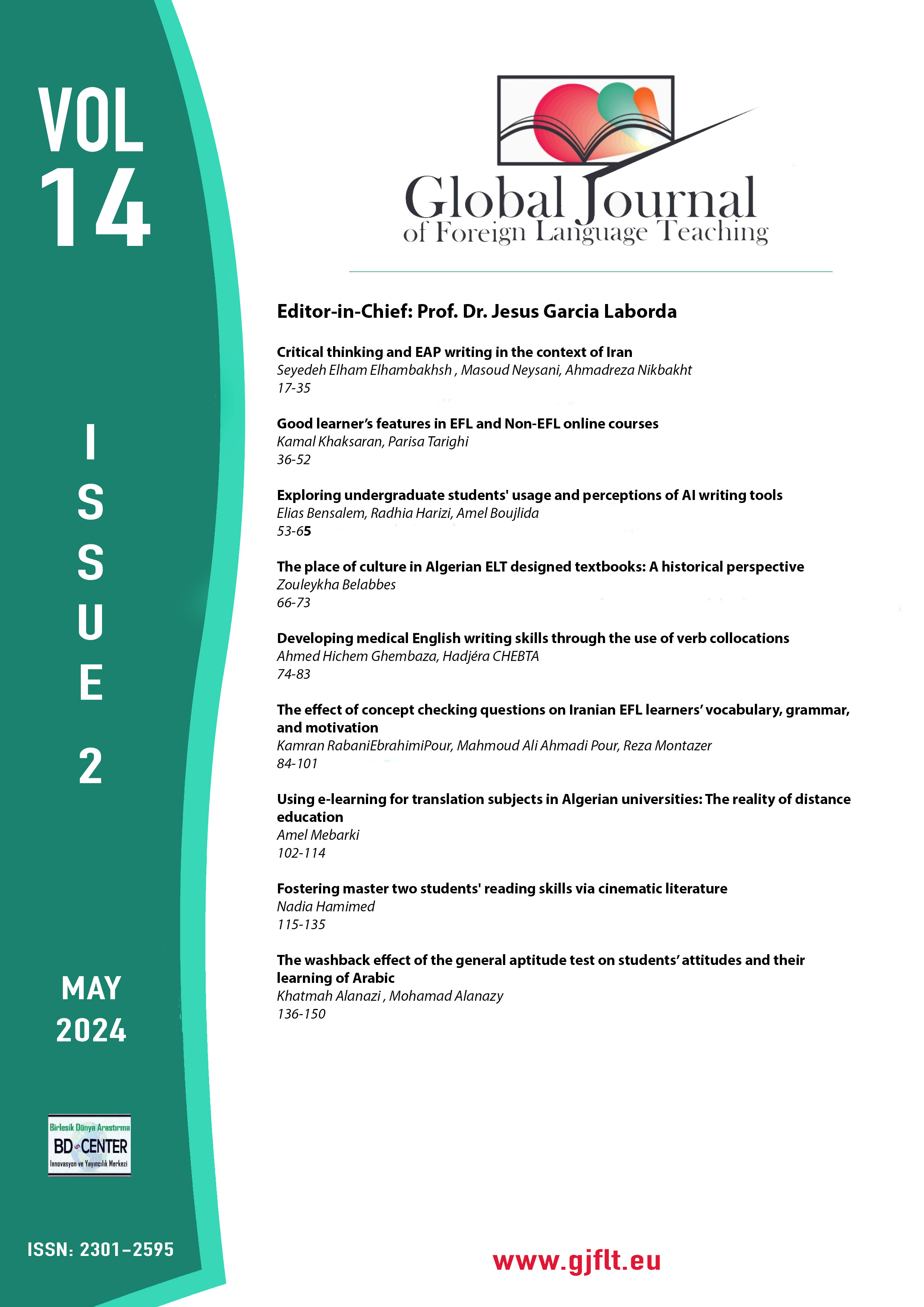Exploring undergraduate students' usage and perceptions of AI writing tools
Main Article Content
Abstract
Artificial intelligence (AI) technologies have seen significant integration in various fields, particularly in higher education. The current study aims to explore the extent of students’ usage patterns of AI writing tools, their overall experience of using AI writing tools, and challenges and concerns about using AI writing tools. In addition, the study aims to examine the ways AI writing tools have affected students’ writing skills and features or improvements that they would like to see in AI writing tools to enhance their writing experiences. A survey of 161 undergraduate students from a public university in Saudi Arabia revealed the widespread and regular use of AI writing tools for written assignments. In addition, the majority of participants reported their adoption of AI tools, citing their convenience and efficacy in enhancing writing proficiency. However, qualitative analysis of the participants’ learning experiences revealed concerns regarding the potential negative impact on the development of writing skills and ethical considerations. In light of the findings, researchers discuss pedagogical implications.
Keywords: Artificial Intelligence (AI); AI writing tools; EFL students; students’ perceptions.
Downloads
Article Details

This work is licensed under a Creative Commons Attribution-NonCommercial-NoDerivatives 4.0 International License.
Authors who publish with this journal agree to the following terms:- Authors retain copyright and grant the journal right of first publication with the work simultaneously licensed under a Creative Commons Attribution License that allows others to share the work with an acknowledgement of the work's authorship and initial publication in this journal.
- Authors are able to enter into separate, additional contractual arrangements for the non-exclusive distribution of the journal's published version of the work (e.g., post it to an institutional repository or publish it in a book), with an acknowledgement of its initial publication in this journal.
- Authors are permitted and encouraged to post their work online (e.g., in institutional repositories or on their website) prior to and during the submission process, as it can lead to productive exchanges, as well as earlier and greater citation of published work (SeeThe Effect of Open Access).
